Spreading Cheer Online: Your Ultimate Guide to Christmas Digital Marketing

Are you ready to welcome the most wonderful time of the year?
Autodesk Inventor LT 2016 - https://abcoemstore.com/product/autodesk-inventor-lt-2016/ is a complete real-world reference and tutorial for those learning this mechanical design.
Christmas is one of the most loved holidays around the world. Carols, Cakes, Gifts, Decorations it's the day of pure joy and happiness. When houses and streets renovate decorations to welcome this special day of the year, why not your Digital Marketing? Yes, you heard that right! It's time to redecorate your Digital Marketing business for Christmas.
Christmas brings a lot to the marketing world: gift cards, discounts, campaigns, special packages, and many more. It doesn't matter if you are running a tech company or a bake shop, the impact of this Holiday does reflect on your business. Let's dive into some interesting facts to help your business prepare for this jolly good season!
Christmas Themed Website
A website is more like the soul of a company, all information including a company's brand story, services, portfolios, and contact information are explained on the website. It is the first and foremost source of information that customers reach out to know more about the company. This indicates the importance of a professional and creative website's importance in marketing. So what can you do to make your website more merrier?

Make design Adjustments
Customers when looking online for great deals and ideas don't want to see a home page that is regular and boring. If you want to bring some holiday spirit to the table, make sure you show some!
Graphics and Animation effects
From subtle motion graphics to eye-catching visual effects, animations have become a powerful tool for engaging users and presenting information more fascinatingly.

Fonts and Colour
For many years red and green have been the traditional colours of Christmas, and colors play a significant role in setting the mood. Likewise, fonts also stand out, using the wrong font styles can completely derail the message a brand is trying to send, so make sure you use the best fonts that give out the holiday vibes.

Create Holiday- Related Contents
Holiday-themed content is a great way for businesses to connect with their target audience and boost sales. Crafting content that brings in the Holiday spirit helps you to build an emotional connection with your audience. Being relatable and creative is something that people always look up to.
Social media marketing
During the holiday season, social media marketing becomes a critical conduit for businesses to engage with consumers amid the festive fervor. With an increase in online activity and a desire to find the ideal gift, social media platforms have transformed into buzzing hotspots for users looking for inspiration, offers, and suggestions. Through interactive and visually engaging content, digital marketing agencies can drive more traffic through web marketing. The capacity to engage directly with the audience, answer questions, and provide fast customer service improves the overall buying experience. Furthermore, the holiday season sees an increase in online purchasing habits, and social networking networks with shopping capabilities promote smooth transactions.

Christmas Themed Contest
Creating contests, games, and gift cards with a Christmas theme is one of the most popular ways to drive traffic. These contests and games can be about anything, such as delivering free digital marketing services or offering discounts. People adore freebies and perks, especially during the holiday season. Audiences are always open to reliable purchases that are dependable, so holding onto such contests and marketing them on social media can boost your business to the next level.

Christmas is a wonderful time for both customers and businesses, people want to spend more quality time with their friends and family by exchanging gifts and spreading love. This is the best time to increase profit sales by giving what your audience wants. So let's not waste any more time, let's get ready for the best holiday of the year!
How To Write a Blog Post That Ranks on Google

How To Write a Blog Post That Ranks on Google
Let's start this article off with a frank yet freeing truth:
There is no perfect formula for a blog post.
If you’re like us, that’s both encouraging and frustrating. After all, wouldn’t it be easier to follow a list of rules for great results every time?
Of course, it would!
But thankfully, we don’t live in a world of robots. We live in a world of creative thinkers, careful buyers and passionate opportunists. And Google knows that!
That’s why they carefully curate each search results page (SERP). They do their best to ensure the top-ranking pages provide the best search experience. AKA the content that the searchers are looking for.
So, while we can’t offer a simple a + b = c solution, we can help you write better content that has the potential to rank higher.
Grab your pencils (or open a Google Doc), and let’s get started!
Psst…looking for local SEO blog writing services? Get in touch with our team!
How Does Google Rank Content?
Google is an incredible tool. This search engine has access to information from all over the world - delivered straight to your SERP within milliseconds.
With around 7 million blog posts published daily, Google has its work cut out!
It needs to determine what each blog is about and rank them accordingly. This ensures the user’s search journey is successful and fast!
It's Google's job to,
a) Interpret what users are searching for,
b) Understand their search behaviour and
c) Analyze their reaction to search results.
Key Factors That Affect Search Results
While Google isn’t totally transparent about its algorithm, it gives great insight!
After all, Google wants good content found!
There is a sea of content to sort through daily. But making content publishers jump through a million hoops to get seen isn’t the solution. Giving these publishers the tools and knowledge they need to get that great content noticed is!
If you are what a user is searching for, Google will help them get to you! But it’s your job to create the right content and make it easy for Google to recommend you.
Here’s how that’s done!
“To give you the most useful information, Search algorithms look at many factors and signals, including the words of your query, relevance and usability of pages, expertise of sources, and your location and settings.”
Below are 5 key factors Google uses to determine which results to display for a given query.
Note: You’ll notice, everything points back to the query - what the user is looking for. Google ensures its results align as closely as possible with the user's goal. This ensures the search is quick and successful!
Meaning
First, Google must understand the intent, or meaning, behind a user’s query.
Often, this means deciphering gibberish from a hurried, one-handed user. We’ve all been guilty of that!
Once the user hits “Search”, it’s up to Google to make sense of it.
The system must then,
- Recognize/Correct spelling mistakes.
- Understand and connect words to the right content.
- Understand what type of information the user is looking for.
- Understand when the user wants up-to-date or local information (i.e. local coffee place).
Relevance
Once Google understands what the user is looking for, the next step is to analyze for relevancy.
This is the first step of analyzing your content!
During this process, Google looks for relevant keywords that match the query. This could be an exact keyword/phrase or a close match.
Quality
Once the content has achieved relevance, Google analyzes its quality.
Here, Google is looking for:
a) Expertise,
b) Authoritativeness, and
c) Trustworthiness.
One way Google determines quality content is if other prominent websites link to it. This typically tells Google that the content comes from a reliable source.
Related Article: The Power Behind Good Copywriting Services
Usability
If the content passes the quality test, it moves on to the usability test. This is where things get a bit more technical.
Usability refers to how accessible the content is - a major factor in page experience!
Thankfully, relevance trumps usability in Google’s ranking strategy. But if you’re competing against several high-quality, relevant pages, it could ruin your chances of landing in the top 10!
Here are some examples of page experience aspects that Google looks for:
- Mobile-friendliness
- Site speed
- Contrasting colour scheme
- Site navigation
- Accessibility
- Browser consistency
- Clean code
-
Context
Lastly, Google doesn’t just look at a user’s current search. It uses a variety of search factors to determine which results to show.
This includes:
- Search History,
- Search settings.
- Geographical location, etc.
Essentially, Google matches results to a user’s unique interests!
Simple Steps to SEO Your Next Blog Post
Now that you know how Google analyses and ranks your content, it’s time to polish yours up!
Below are 6 steps to optimize your next blog post and get it ranking:
Step 1. Keyword Research
The first step is thorough keyword research.
For Google to deem your content relevant to a user’s search, it must match up with their query. This can be an exact match or a related match.
Keyword research gives you the data you need to know the terms and phrases users are searching for. You can then make an informed decision about which keywords you plan to target on your site.
We recommend choosing keywords that have a
- High monthly volume
- Low difficulty
- High priority
- High Relevance
Not sure where to get started with keyword research? Our team can help!
Step 2. Search Intent
Next up is search intent!
Before you start writing, think about your audience and their query.
What exactly are they asking you?
What type of information are they looking for?
What is the best way to present the information to them?
These questions provide you with the purpose of your article. It’s not a step you want to skip!
Step 3. Heading Optimization
Did you know that only 16% of people read every word on a page? 79% just scan the content!
What does this mean for you?
It means you need to strategize the organization and structure of your content.
One of the most effective ways to do this is by using headings and subheadings!
This makes it easier for your readers to skim your content for information and reach their goals.
Remember: Google’s mission is to end the user’s search journey quickly and successfully. If they can find what they’re looking for quickly, you’ve succeeded!
Step 4. Content Optimization
Content optimization comes in two parts - creative writing and search optimization.
First, we recommend writing for humans, not search engines. After all, you’re not trying to impress Google. You’re trying to impress your readers.
If you succeed, Google recognizes this and ranks you higher!
Related Article: 5 Content Writing Tips To Increase Traffic & Retain Customers
Second, focus on optimizing your content for both user experience and search. We call this search engine optimization, or SEO!
Factors Affecting SEO:
- Keyword optimisation
- Clarity
- Links
- Readability
- Consistency
- Structure, etc.
Step 5. Behind The Scenes Optimization
Lastly, we recommend optimising all behind-the-scenes aspects as well. Here, we’re referring to both front-end and back-end content that’s not necessarily part of your main content.
Essential SEO Elements:
- Meta description
- Alt text on images
- Internal linking
- URL
- Page Title
The user and Google both rely on these elements to better understand your page content. This makes them essential to a well-optimized article!
Related Article: SEO For Beginners
Start Blogging For Better Results Today
Blogging has become a powerful tool in the world of content marketing. Small and large businesses use it in their development and growth strategies. It’s proven quite successful in both areas!
If you haven’t started a blog, this is your sign.
Top Benefits of Blogging:
- Increase traffic,
- Drive conversions
- Up your website reach,
- Showcase your expertise,
- Build authority in your industry,
- Engage with your audience,
- Build trusting relationships,
- Strengthen brand recognition and
- Differentiate yourself from competitors.
Related Article: 7 Reasons to Start a Blog
Need help getting started? Get in touch with our marketing team! We offer keyword research, SEO blog writing services and copywriting services!
Call us at 613-969-0626 or contact us online!
Digital Marketing 101: What is it? Does Your Business Need it?

Digital Marketing 101: What is it? Does Your Business Need it?
If you own a business in 2023, there’s no way around it. Digital marketing services are essential to effective brand establishment, recognition and growth.
Without it, you miss hundreds, if not thousands, of opportunities to get in front of your target audience.
While digital marketing has evolved over the last decade, one thing is for certain:
It’s not going anywhere!
Digital marketing is only becoming more and more prominent.
The methods consumers use may change and adapt as new platforms become available. But the root concept of digital marketing is stronger than ever.
Essentially, if you want to compete in today’s market, you must embrace its digital landscape.
But where do you begin?
In this article, we deep dive into all things digital marketing. We discuss everything - from its definition to how to best take advantage of its waiting opportunities.
Keep reading to get your business on the (virtual) map!
What is Digital Marketing?
As a business owner, you have probably heard the term digital marketing frequently. After all, it’s one of the most crucial aspects of owning a business.
We’re here to ensure you understand,
- What it means,
- The opportunities it presents and
- How you can best access those opportunities.
Let’s get started!
In a nutshell, digital marketing is advertising delivered through digital channels.
The type of digital channel a marketer chooses depends on their client, product, budget, etc.
These factors help narrow down where, when and how a business should show up online.
Common Digital Channels:
- Social media
- Search engines
- Websites
- SMS
Which online platform(s) do you think best fit your business?
We’ll dig deeper into these platforms later. But for now, think of some examples of digital marketing you have seen in these online spaces. Things like promotional video ads, banners, text messages, etc.
Chances are, you have seen hundreds of these promotions via your own personal channels.
This leads us to our next question…
Why is Digital Marketing Important?
Digital marketing is a big part of everyday life. Whether we like it or not, it's everywhere!
This is exactly why it’s so important.
Digital marketing allows you to connect and engage with prospective and existing customers. Not where you are. But where they are. And on an almost constant basis!
E-commerce has steadily grown in popularity for years, which is no surprise! Online shopping is incredibly convenient. After all, it’s literally at your fingertips.
This year alone, there are 80 million more digital buyers than in 2022. That puts the total number at 2.64 billion.
To put that number into perspective, we’re talking 33.3% of the world’s population.
Consider these statistics!
- 81% of consumers research a product/service online before purchasing in-store.
- The average Canadian spends over six hours/day on digital media.
- Digital advertising accounted for 64.8% of the total advertising spend in 2021.
- 87% of online Canadians start following a brand after visiting their website.
It’s easy to see that digital marketing is now an integral part of the Canadian economy. Not only is it taking over other forms of advertising, but it also focuses on today's most crucial aspect of marketing: personal connection!
Top Benefits of Digital Marketing:
- Global reach
- Local reach
- Cost efficiency
- Improved customer experience
- Measurable results
- Effective targeting
- Enhanced brand awareness
- Increased engagement
There’s also the convenience of different types of content on each platform. Online marketing opens up an array of content types that cater to your specific industry. Examples include blogs, podcasts and video content!
Now that you know what it is and its importance, it’s time to better understand how to use it.
Types of Digital Marketing and How to Use Them!
While many forms of digital marketing exist, most small businesses focus on those with the highest ROI potential. In most cases, that includes content, SEO and social media.
Content Marketing
Content is one of the most popular forms of digital marketing.
Digital content marketing is any form of content shared digitally. It’s usually informative, leading your audience to take a specific action - like asking a question or clicking a button!
At its core, its intent is to,
a) Attract visitors to view said content and
b) Encourage them to take the desired action (whatever that action might be).
Examples of Digital Content:
Pro Tip: Create content with your specific target audience in mind. This helps position your brand as a trusted voice and relate directly to your people.
Discover how good copywriting can help boost your marketing efforts!
SEO
SEO (search engine optimization) typically goes hand in hand with content marketing. After all, how else do you get your content in front of the right people?
Optimizing content specifically for search can help it rank higher in search results. This puts your content in front of more people. And the best part is, those people are already searching for you!
While there are many forms of SEO, we recommend focusing on:
- Content Strategy
- Keyword Research and
- Technical Optimization.
These three elements help focus your content and ensure it’s searchable by the right people.
Social Media Marketing
If you’re looking for an easy way to connect and communicate with your audience, this is it!
The right platform allows you to effectively build awareness and generate leads!
Examples of Social Platforms:
- Snapchat
- Threads
- TikTok
- BeReal
The best thing about social media marketing is that it builds on its own success. Your efforts can quickly magnify as engagement with your account adds up.
This is a great way to use organic (unpaid) content to boost your business. And while organic content goes a long way, these platforms also offer the opportunity for paid ads!
Not sure where to get started? A social media agency can help simplify and optimize your marketing!
Develop Your Own Digital Marketing Strategy
What does your digital marketing strategy look like?
Before you start marketing, we always recommend starting from square one. You have to know WHO you are targeting and WHY!
These two factors are the basis for any digital strategy and will hugely boost your ROI.
Without knowing who you want to target and why, you can’t decipher HOW best to connect with them.
Let’s start developing your strategy with effective digital marketing services today! Our marketing team at OSM ensures your plan fits your business goals and budget.
All our marketing packages are customizable. So you can choose a plan that caters directly to your needs!
Discover 7 Benefits of Hiring a Local Digital Marketing Agency!
Get In Touch
Let’s talk all things digital marketing!
Call our marketing team at (613) 969-0626 or contact us online!
A Social Media Agency Will Simplify & Optimize Your Marketing!

A Social Media Agency Will Simplify & Optimize Your Marketing!
The to-do list never seems to end as a business owner. There’s a team a manage, payroll to submit, products to design, and so much more. For many business owners, running a company takes up much more time than they thought.
If that’s you, keep reading.
Owning a business is one thing. Running a business is another.
Doing all the behind-the-scenes work on top of that - like marketing or admin. - takes a huge toll on your time.
Explore OLG Slots at Georgian Downs when you travel to Innisfil.
Social media is one of those behind-the-scenes tasks.
When you spend all your time creating content and managing your platforms, there’s little time for much else. But results tend to slide if you step away to focus on other important tasks.
While you may love working in and on your business, even you can admit there is more to life than keeping it going 24/7.
This is where a reliable social media agency comes in!
It’s Time To Let Go Of The Reigns
Many business owners have difficulty giving up control.
We’re guilty of this too!
Letting go of something you love or are good at is extremely difficult. Especially if it’s something you’ve built from the ground up - like a business!
After all, you’ve got it to where it is today. All you want to do is keep things going strong.
But you’re running out of brain capacity, let alone time in your busy schedule.
What’s funny is that business owners tend to start their own businesses for just that reason. To free up their time, have more control and be their own boss.
So what happened?
“The irony is that some of the reasons we start our own businesses are possibly the very things that can challenge us if we want to build our business to greater heights.”
- Catherine Meyer (CEO and Founder of Catalyst Leadership Solutions).
Simply put, you can’t do it all.
In fact, we’d go as far as to say that you shouldn’t do it all.
You’re needed in so many different areas of your business. But those areas need your full attention and energy. They don’t deserve only 50% of your efforts.
Neither do your social media accounts.
To keep all areas of your growing business operating at 100%, you have to learn the art of delegating.
And we promise, with the right team, it’s easier than you think!
Benefits of Investing in a Social Media Agency
The right social media agency will be your trusted partner.
It’s not enough to simply take over the management of your socials. A good agency embodies your brand personality and values.
They become an extension of who you, as a brand, are. And the benefits are tenfold!
Structure
A social media agency builds structure into your marketing strategy.
For every campaign, promotion, or idea put forward, there is a unique plan designed. This plan spreads across each platform and is intentionally curated to help you reach your goals.
The benefit of a social media agency is that a team of experts specifically tailors each piece of content to the platform and audience it’s launched to.
The Result: A higher return on investment!
Optimization
If your social account(s) is already doing well, it’s probably as good as it'll get, right?
Wrong.
A good social media agency knows how to take your results and elevate them!
They're not about keeping you where you are. They're about seeing how far you can go and getting you there!
They have access to proven data, dedicated resources and high-end software. This helps them know exactly what works and what doesn’t work for your niche on each platform.
The Result: Improved overall performance!
Professionalism
As a business, professionalism is imperative.
Whether you’re a small or large company, it deserves expert care.
The benefit of investing in a social media agency is that they have access to:
- Top tools
- Expert resources
- Best practices
They also ensure to report and provide feedback regularly! So you always know exactly what’s happening on your account(s) and how to improve.
The Result: Strengthened online professional presence.
Consistency
In the world of social media, consistency is the key. But it’s not just about posting consistently!
Many avenues of content creation, management and engagement rely on consistency as well.
This includes your brand colours, voice, topics, timing, aesthetics, etc.
For example...
The more consistent your brand aesthetic is, the easier it is to recognize. This helps enhance your brand awareness and recognition.
Using consistent voice and topics in your materials is also crucial. If you were the only one managing your socials before, it was probably quite obvious.
Your voice would come through pretty consistently across all your channels.
When you hire a social media agency, they ensure this consistency stays intact.
Lastly, a consistent social schedule.
Social agencies create a consistent social schedule for each platform. They also ensure your content is well-varied and balanced across these varying channels.
This ensures high-performing posts that optimize your reach!
The Result: Improved brand recognition and higher potential for reach.
Efficiency
As mentioned above, you can’t (and shouldn't) do it all.
Investing in a social media agency helps save time for the areas of your business that really need you.
They can help,
- Create,
- Optimize,
- Test,
- Manage &
- Analyze!
- These experts maximize your budget to reach your business goals without taking up all your time.
The Result: More freedom in your schedule.
Rest Assured That You’re Hiring Professionals
A good social media agency doesn’t just embody your brand personality. It amplifies it!
This team of professionals refines and strengthens your brand voice. They know exactly who your audience is and precisely how to reach them.
The best part?
They aren’t spread too thin. Each team member has a specific role - designed for their unique expertise.
Below are some of the roles within a social media agency:
- Social Account Manager
- Paid Social Manager
- Social Media Strategist
- Copywriter
- Graphic Designer
- Community Manager
These dedicated resources focus on optimizing each specific area of your social account(s). They also work together to ensure consistency across all platforms!
And all you have to do is hire one team.
You don’t have to wear 10 hats or outsource to 10 different people. You can trust one team to handle everything proficiently. From ideation to creation and management - they've got it handled!
OSM: Your Local Social Media Agency in Quinte
Looking for a local social media agency in Quinte, Ontario? Contact our team at OSM!
Our social media management services are all-inclusive - from content creation to reporting. We’ll take your online presence to the next level!
Let’s Get Started
Letting go of the reigns doesn’t mean letting go of your business.
In fact, quite the opposite!
Hiring a social media agency is an investment that promises to simplify and optimize your marketing. So you get all the benefits without putting in all the work.
Have more questions? Get in touch with our team today!
10 Signs Your Business Needs a Custom Programming Solution

10 Signs Your Business Needs a Custom Programming Solution
Your business should be unlike any other.
Services and products might be similar. But the core vision, processes and operations can be entirely unique.
This is what differentiates your business and gives you that competitive advantage.
We have an incredible team of web designers, developers and programmers at OSM. Together, they bring about solutions that simplify, enhance and boost your business!
We do it all! From productivity-increasing upgrades to custom-built customer relationship management (CRM) systems.
Our programmers don’t believe in cookie-cutter fixes. They commit themselves to creating a solution that works best for you - from scratch!
When you can’t find the fix you need off the shelf, our team gets busy customizing one. We create a seamless solution that’s reliable, secure and designed to fill your unique needs.
Not sure if a custom solution is the right investment for your right now? Keep reading!
Below are 10 signs that your business needs a custom programming solution:
1. Your company relies solely on manual processes.
Most businesses rely heavily on manual processes - and for a good reason! This personal touch of creativity and professionalism makes a huge difference.
But, as you know, to err is human.
It’s normal to make mistakes, run out of time or burn out.
This is when manual processes become an issue.
When your team spends too much time, energy and effort doing things by hand, it’s time to upgrade.
In most cases, this indicates over-dependency on manual processes.
Something’s gotta give!
Investing in a custom programming solution means automating these time-consuming tasks. And with automated operations, your team’s efficiency and productivity both benefit!
2. You’re experiencing chronic process disorganization.
Process disorganization in small businesses is not uncommon.
With a small team and a large clientele, it’s no wonder things are getting lost in the mix. These small teams manage everything - from clients and projects to inventory and payments!
With a custom automation solution, you can automate these repetitive tasks. This frees up your time and ensures professional organization 24/7!
3. You’re experiencing too many recurring issues.
We’ve all experienced tech issues. But once they start repeating themselves, you know there’s a bigger problem.
Recurring issues that cause program failures or bad user experiences can deeply hurt your business.
Your ROI could drop. Your customer retention could plummet. And your once thriving CRM could cause your entire workflow to crash and burn!
In these cases, a one-size-fits-all solution won't always work.
You need a system that’s designed solely for you - your team, your workflow and your business objectives. And with our programmers, you can get exactly that!
4. You cannot upscale your business.
Whether you’re a large or small business, growth is always a good thing!
That is…unless your business can’t handle the growth.
Upscaling your business without upgrading your processes is a recipe for disaster.
You’ll quickly run out of manpower, resources and space - resulting in company-wide burnout!
Designing a custom solution as the foundation for your expansion is critical.
5. Your customer satisfaction is declining.
Does your business rely heavily on your website? E-commerce, travel agencies and the health industry are a few that typically do.
In these cases, your clients use your site daily.
So, what happens if the current systems you have in place aren’t living up to your client's standards?
If customer satisfaction declines, it's a clear sign your website must improve.
After all, these systems are primarily for the benefit of your clients. If they fail, your clients will leave and your business will suffer.
It’s up to you to ensure it's doing its job - enabling you to build a successful relationship with your clientele.
If it fails to uphold customer satisfaction, an upgrade is not only recommended, it’s critical.
6. Your business is inefficient and stagnant.
Efficiency is key for steady revenue and growth.
If you’re noticing a decline in your team’s productivity, you must get to the bottom of the issue immediately!
We mentioned above how disorganization and manual processes can slow your business down.
But many other factors also contribute to this inefficiency.
One of these factors is stagnancy. This is a business's refusal or inability to move forward with changing technologies.
Think for a moment about old-fashioned methods of payment - i.e. relying solely on cash and a cashier to make a payment.
While this worked at the time, it eventually became less efficient. New, more practical payment methods quickly arose.
Today, retailers use a variety of payment methods - from automated self-checkouts to PayPal integrations!
These systems save time, money and effort.
Is your business feeling stagnant lately? Are you ready to take the next step forward?
If so, now is the time to invest in a custom programming solution!
7. You track and analyze everything by hand.
Another old-fashioned way of business is manual tracking and analysis.
Manual data entry and spreadsheets were once a necessity. They were the only real way to track success and plan for the future.
Today, we have a better solution.
Our programmers can create a custom system built uniquely to your tracking needs. We can program your system to do almost anything - from reporting to prediction analysis!
8. You’re having difficulty reaching and managing your customers.
Is your CRM (customer relationship management) system helping or hurting your business?
One of the biggest challenges businesses face is the use of a CRM that does not meet their tailored needs.
Because every business is unique, each requires its own custom solution. This is especially the case when working with a company’s customer relationships.
These relationships are the backbone of your business. And, as we’ve stated before, it would not survive without them.
The solution?
Custom CRM solutions.
These unique solutions have your unique clientele in mind.
We recommend custom CRM if you need a web-based platform to meet clients' relational needs.
9. There is no communication happening between teams.
In the wise words of George Bernard Shaw:
“The single biggest problem in communication is the illusion that it has taken place.”
Poor team communication is typically easy to spot.
You may see it in delayed communication from leadership roles. Or you may experience it in a hybrid/remote work environment.
Your business suffers when team members and leaders fail to communicate information effectively.
Some of the effects of poor workplace communication include:
- Employee mistrust, absenteeism and low morale
- Low productivity due to lack of information
- Loss of sales
- Ineffective collaboration
- Workplace conflict
How can custom programming help?
Our programmers can help create effective communication pathways for all your business connections. This includes yourself, your team, clients, partners, etc.!
10. The solution you’re looking for does not exist.
Are you struggling to find a solution that fits your specific business needs? Or trying to use a program for a purpose it’s not intended for?
News flash: There is more to discover and create in this world!
What a relief!
You may not be able to find something off-the-shelf, but the solution does exist.
It just hasn’t been created yet!
That’s where our team of programmers come in.
When your needs don’t mesh with standardized solutions, our team get down to business!
Why Invest in Custom Development?
You cannot rely solely on standardized solutions to reach your business goals effectively.
Sharpen your competitive edge with a custom solution designed to fit your business. The right upgrade can drastically improve your workflow, efficiency and more!
This gives you the momentum you need to launch into the next phase!
Benefits of Custom Development:
- Automated workflow
- Increased ROI
- Improved data security
- Increased sales
- Enhanced brand loyalty
- Improved site performance
- Reduced manual labour
- Optimized operating cost
PLUS! When you work with our OSM, you can be 100% sure that your upgrades are affordable, reliable and secure.
That’s our job! And we do it well.
Check out some of our recent work!
Alarm Systems
Our programmers built custom customer and staff portals that
a) Allow staff to manage complex projects from start to finish, and
b) Allow customers to track that progress.
Customer Tracker
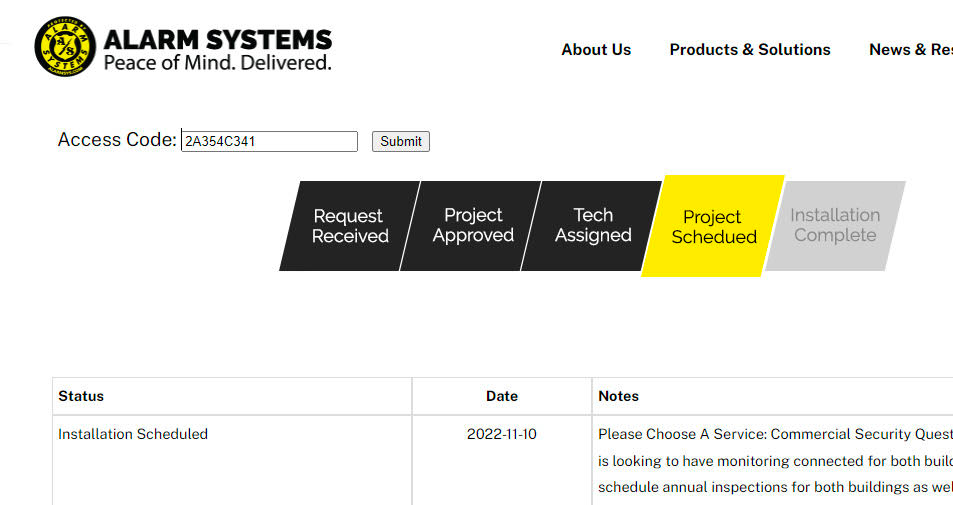
Staff Dashboard
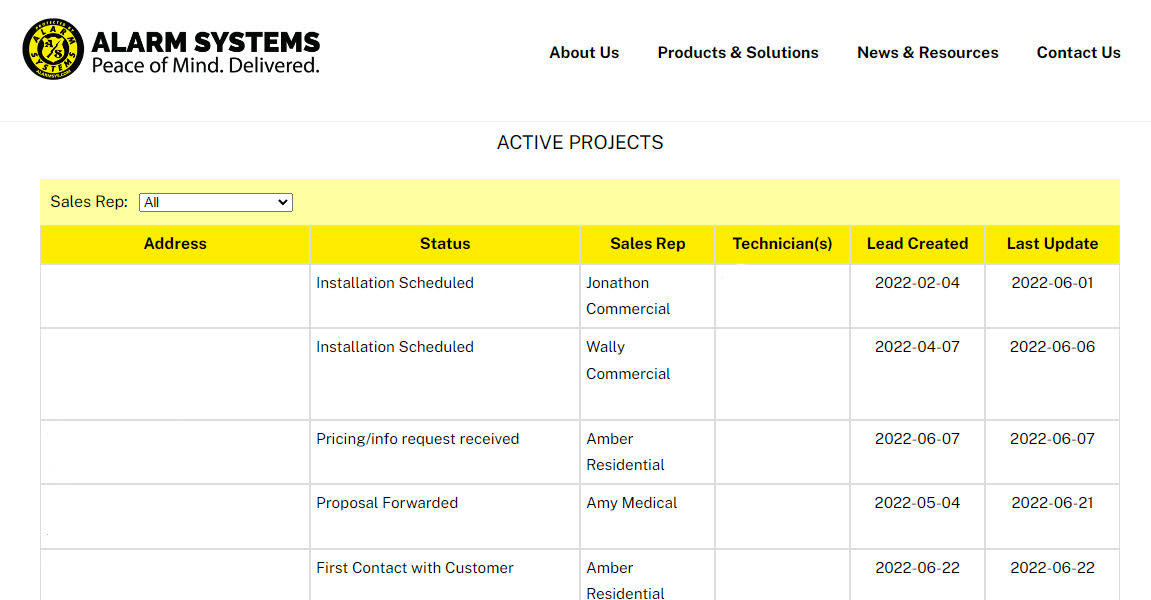
Quinte Health
Our programmers built a nine-page sub-site that can:
- Manage thousands of files,
- Manage tens of thousands of database records,
- Manage calendar events,
- Track inventory, and
- Provide support via a ticket system and knowledge base.
Reagents Inventory
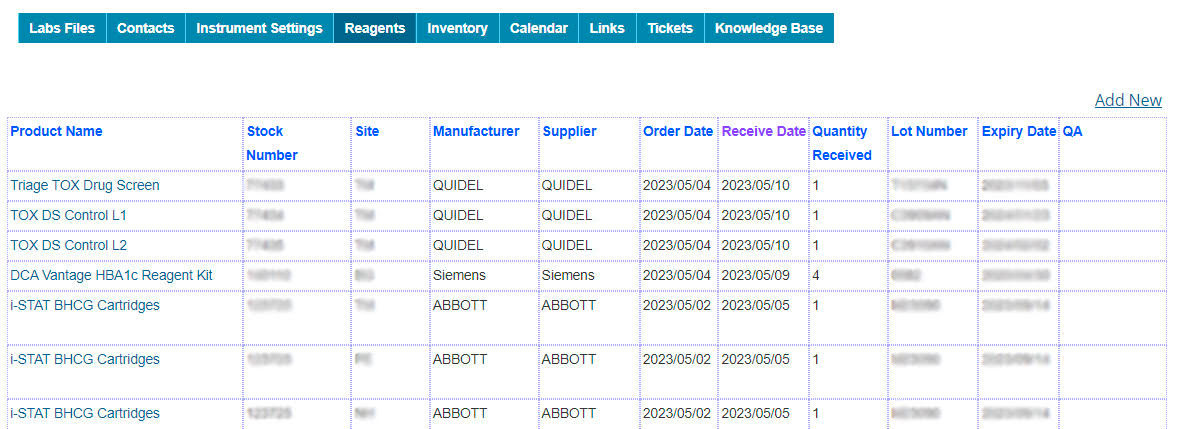
Home Depot Canada
Our programmers built an EDI-based logistics system. This system issued daily requests to carriers for several hundred orders between Canada and the U.S.
Carrier Select

Planner With Map
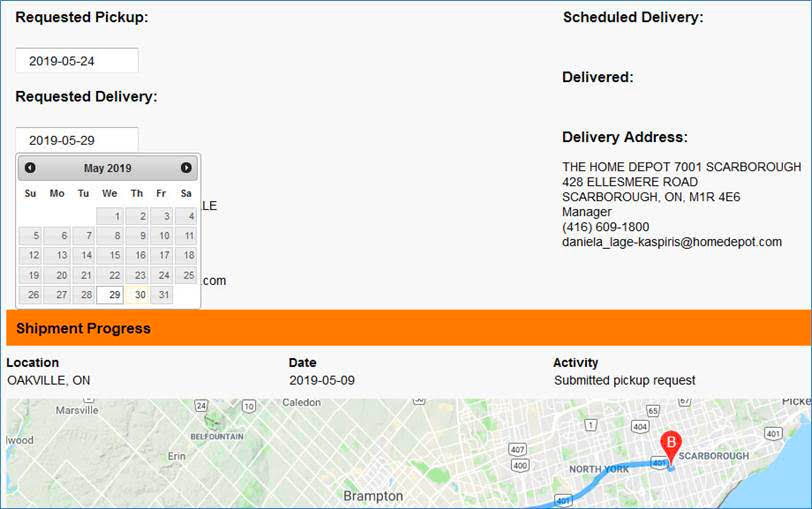
Cambridge Memorial Hospital
Our programmers implemented a system to automate administrative tasks, including:
- Credentialing,
- Staff payments, and
- Professional development.
Staff Dashboard
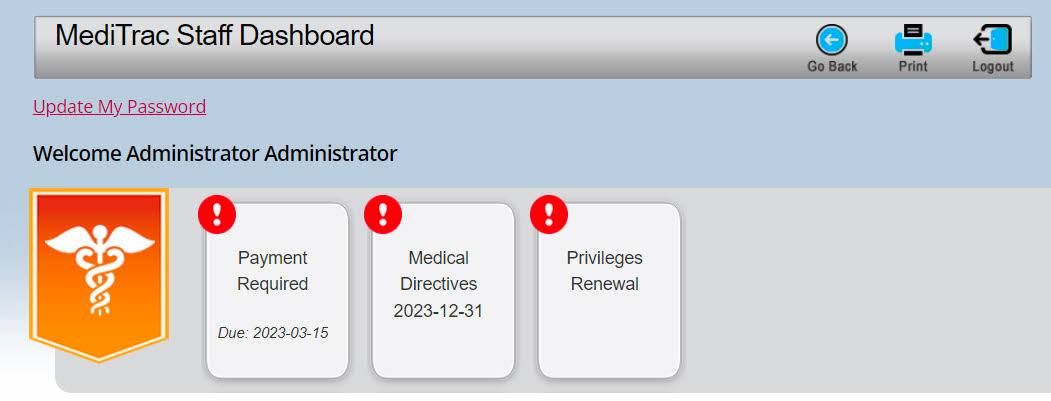
E-Lease
Our programmers designed a custom CRM with a financial lease/loan broker focus.
The main features revolve around,
a) Managing financial transactions and
b) Managing the clients/customers assigned to those transactions.
These critical features are intuitive, quick, mobile responsive and easy to access!
Start Your Project With OSM
Don’t settle for cookie-cutter fixes. Invest in the custom solution that works perfectly for you, your team and your customers!
Ready to start your project?
Contact us online or give us a call at 613-969-0626!
